Books
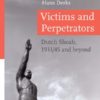
Victims and Perpetrators: Dutch Shoah, 1933/45 and beyond
By Hans Derks. In this book, historian Hans Derks explains how more than 75% of the Jewish population was arrested, deported or murdered in concentration camps during the Shoah in the Netherlands by looking closely at the social and religious characteristics of Dutch society. He also unveils the extensive collaboration of the country’s state-bureaucracy with the German…
Read more
Watching Sympathetic Perpetrators on Italian Television: Gomorrah and Beyond
By Dana Renga. This book offers the first comprehensive study of recent, popular Italian television. Building on work in American television studies, audience and reception theory, and masculinity studies, Sympathetic Perpetrators and their Audiences on Italian Television examines how and why viewers are positioned to engage emotionally with—and root for—Italian television antiheroes. Italy’s most popular exported series feature…
Read more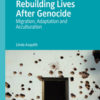
Rebuilding Lives After Genocide: Migration, Adaptation and Acculturation
By Linda Asquith. This book examines how genocide survivors rebuild their lives following migration after genocide. Drawing on a mixture of in-depth interviews and published testimony, it utilizes Bourdieu’s concept of social capital to highlight how individuals reconstruct their lives in a new country. The data comprises in-depth interviews with survivors of the Rwandan and Bosnian…
Read more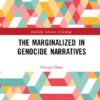
The Marginalised in Genocide Narratives
By Giorgia Doná. Examining a range of marginal stories and using Rwanda as a case study, The Marginalized in Genocide Narratives’ analysis of the transformation of genocide into a powerful narrative of a nation establishes an innovative means of understanding the lived spaces of violence and its enduring legacy. In a distinctive approach to the social history…
Read more
Cinematic Intermedialities and Contemporary Holocaust Memory
By Victoria Grace Walden. This book explores the growing trend of intermediality in cinematic representations of the Holocaust. It turns to the in-betweens that characterise the cinematic experience to discover how the different elements involved in film and its viewing collaborate to produce Holocaust memory. Cinematic Intermedialities is a work of film-philosophy that places a number of…
Read more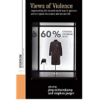
Views of Violence: Representing the Second World War in German and European Museums and Memorials
Edited by Jörg Echternkamp and Stephan Jaeger. Twenty-first-century views of historical violence have been immeasurably influenced by cultural representations of the Second World War. Within Europe, one of the key sites for such representation has been the vast array of museums and memorials that reflect contemporary ideas of war, the roles of soldiers and civilians,…
Read more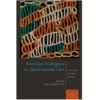
Feminist Dialogues on International Law: Success, Tensions, Futures
By Gina Heathcote. In the past decade, a sense of feminist ‘success’ has developed within the United Nations and international law, recognized in the Security Council resolution 1325 on women, peace and security, the increased jurisprudence on gender based crimes in armed conflict from the ICTR/Y and the ICC, the creation of UN Women, and Security…
Read more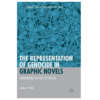
The Representation of Genocide in Graphic Novels: Considering the Role of Kitsch
By Laurike in ‘t Veld. This book mobilises the concept of kitsch to investigate the tensions around the representation of genocide in international graphic novels that focus on the Holocaust and the genocides in Armenia, Rwanda, and Bosnia. In response to the predominantly negative readings of kitsch as meaningless or inappropriate, this book offers a…
Read more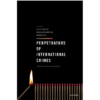
Perpetrators of International Crimes: Theories, Methods, and Evidence
Edited by Alette Smeulers, Maartje Weerdesteijn, and Barbora Holá. Why would anyone commit a mass atrocity such as genocide, crimes against humanity, war crimes, or terrorism? This question is at the core of the multi- and interdisciplinary field of perpetrator studies, a developing field which this book assesses in its full breadth for the first time. Perpetrators of…
Read more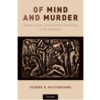
Of Mind and Murder: Toward a More Comprehensive Psychology of the Holocaust
By George R. Mastroianni. How could the Holocaust have happened? How can people do such things to other people? Questions such as these have animated discussion of the Holocaust from our earliest awareness of what had happened. These questions have engaged the lay public as well as academics from many different fields. Psychologists have taken an…
Read more
